
2014 United Nations Public Service Forum
- Date 2014-08-01 06:45
- CategoryResearch and Education
- Hit1441
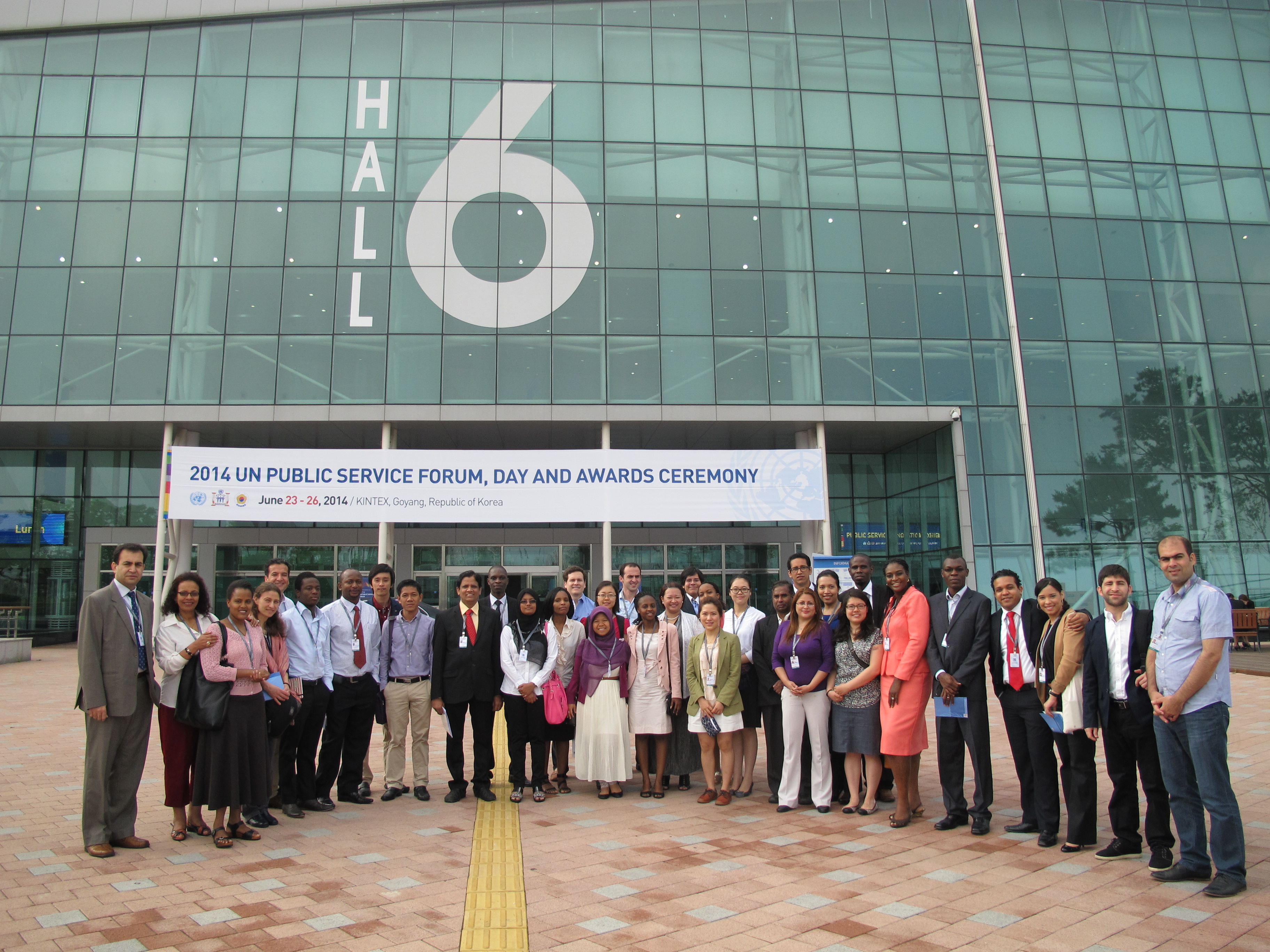
On June 23rd to 24th, one hundred and fifty-four KDI School students and faculty members participated in the 2014 United Nations Public Service Forum held at KINTEX Exhibition Center, Goyang. Under the theme of “Innovating Governance for Sustainable Development and Well-being of the People,” this forum was organized by the Department of Economic and Social Affairs (UNDESA) of the United Nations, through its Division for Public Administration and Development Management (DPADM) collaborating with the United Nations Entity for Gender Equality and the Empowerment of Women (UN Women), and hosted by the Government of the Republic of Korea. Over 1,000 participants from more than 100 countries took part in this global event, including high-level United Nations officials and representatives of the Republic of Korea, as well as world leaders, ministers, senior government officials, mayors, civil society representatives, scholars and private sector representatives.
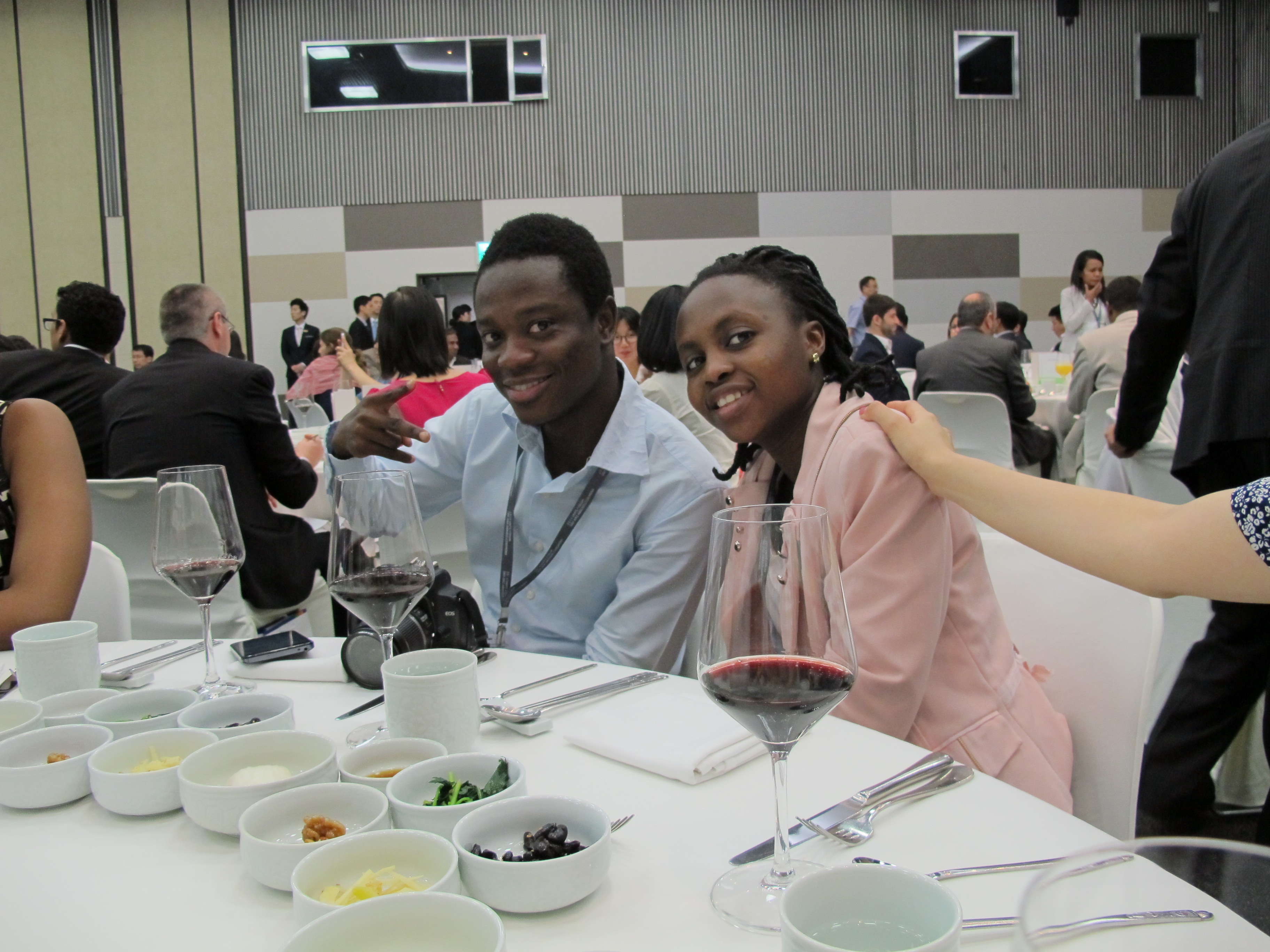
The purpose of this forum was to examine the role of public administration in the implementations of internationally agreed goals like Millennium Declaration. It also served as a culmination of the United Nations public service awards competition process, which rewards public institutions for their pursuit for innovation and creative initiative in public services. The awards program also promoted the role of professionalism and visibility of public service, and encouraged exemplary public service to emphsize that democracy and successful governance are build on competent public service.
In the opening remarks, Minister Kyung-Gyu Kang of the Ministy of Security and Public Administration briefly shared the importance of excellent public service provided by all level of public officials.
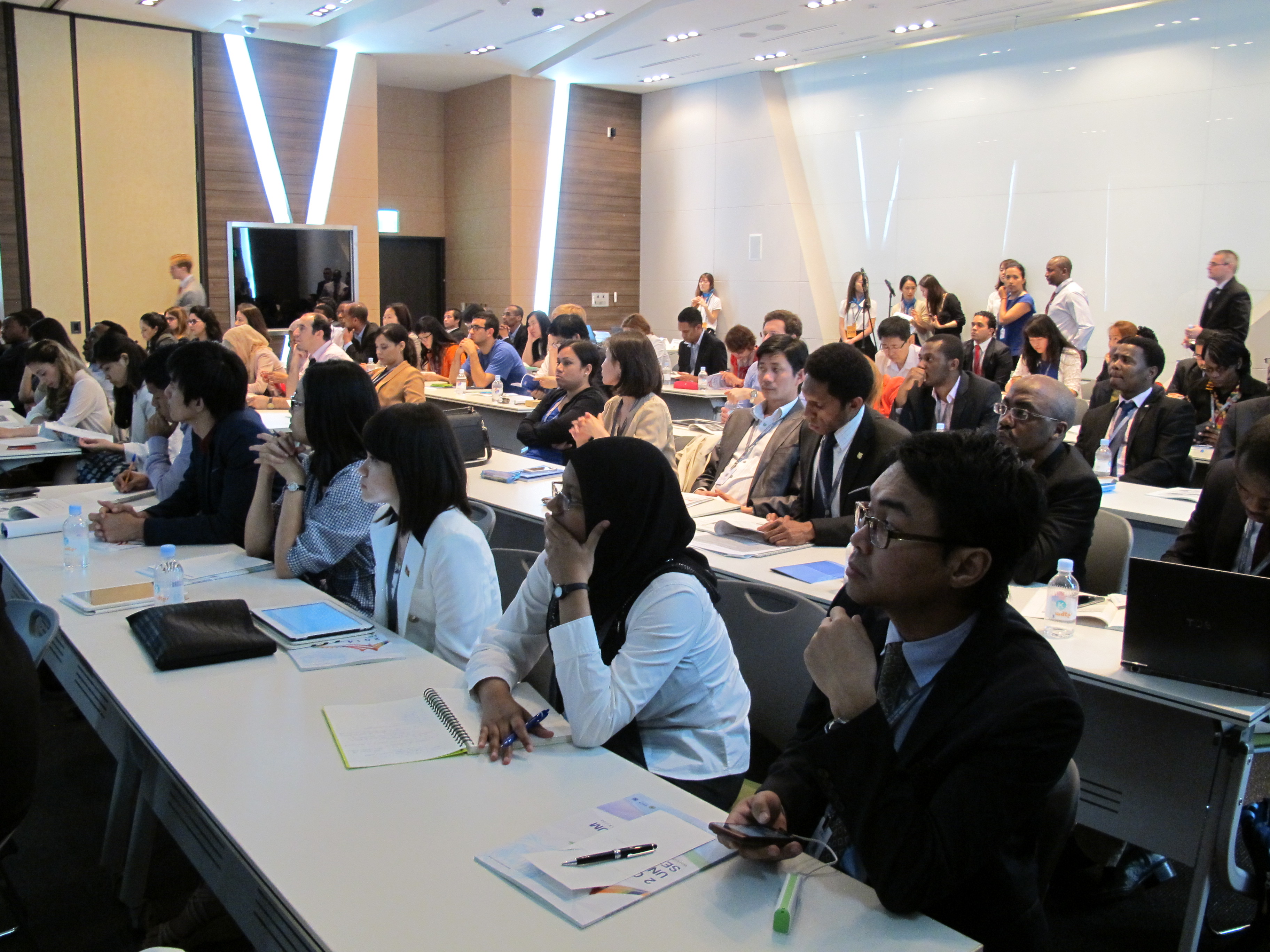
Discussion followed about challenges and tasks in enhancing capacity of governments to reach the United Nations Millennium Development Goals. Importantly examined was effective balance and integration among the policies guiding the economic, social and environmental pillars of sustainable development. Each workshop brought up many brilliant idea and model practices regarding innovations in governance and public administration.
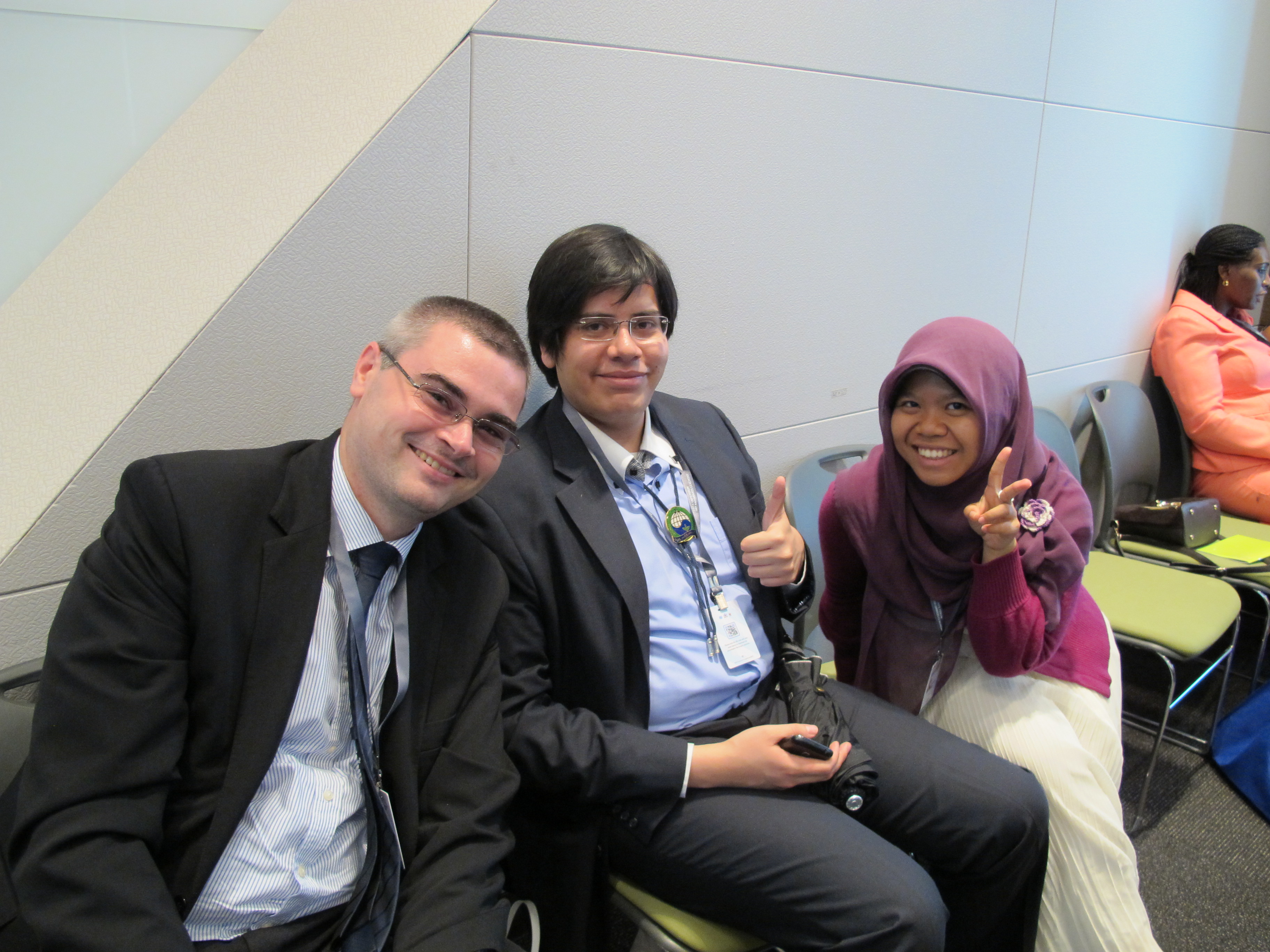
KDI School and Korea International Cooperation Agency (KOICA) co-hosted a special workshop on “Case Study of Public Sector Reforms in Developing Countries.” The two-hour workshop was participated by around seventy KDI School students and several government officials from developing countries who are receiving KOICA scholarship at Seoul National University.
To begin the workshop, Professor Jin Park, a professor and MDP program chair at KDI School conveyed his gratitude to all participants, and congratulated six presenters who have put together great efforts to share the case studies.
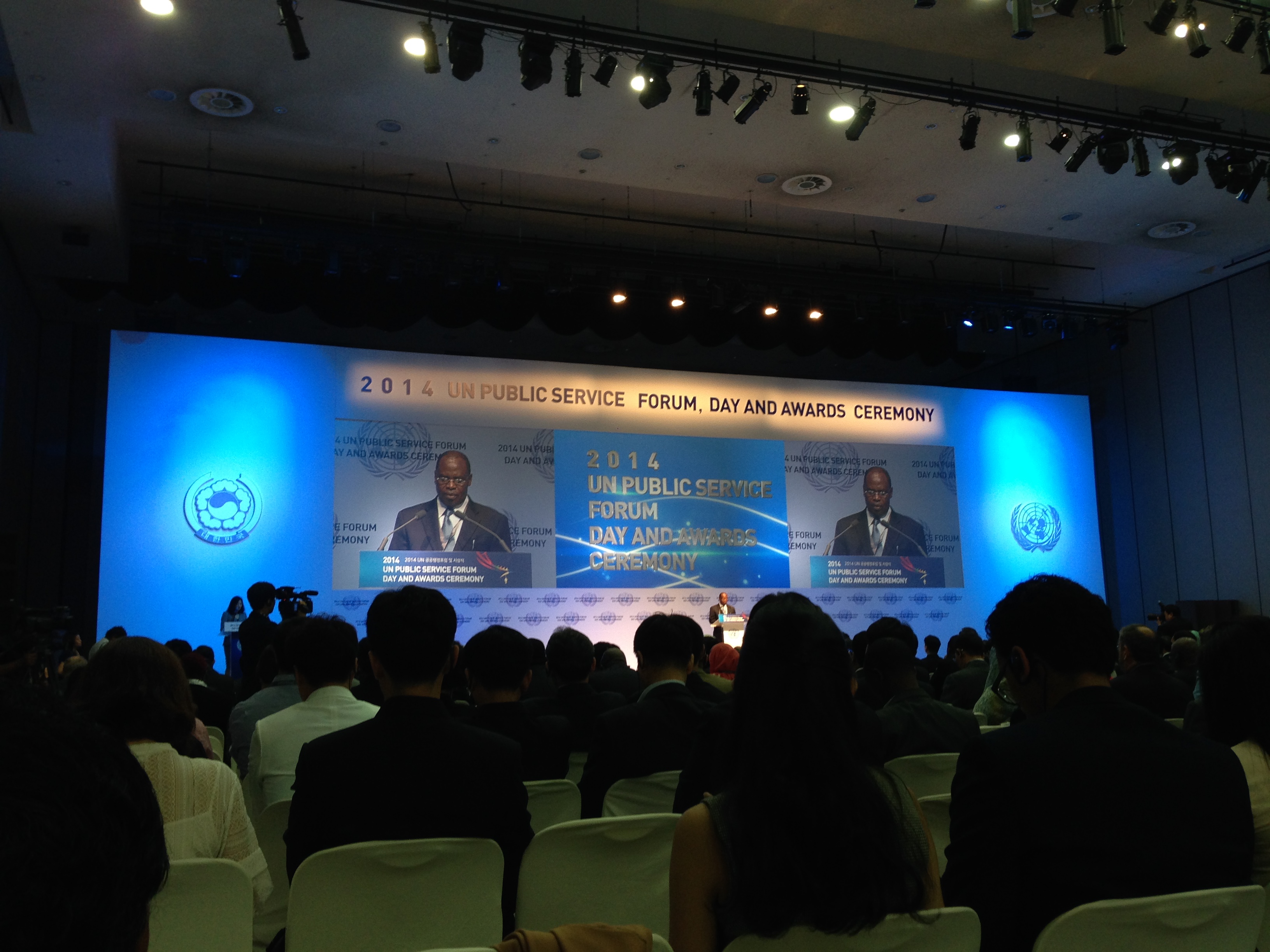
Four students from KDI School and other two from Seoul National University were invited for ten minutes each to introduce public policy reforms of their respective countries. The first presenter Banta Rigoverto Jr (2014 MPP, Philippines) looked into the disaster management reform in the Philippine and particularly the successful recovery after Typhoon Haiyan in 2013. Next, the floor was taken by Mr. Romero San Martin (2014 MDP, Chile) who presented on drug trafficking and effective northern frontier plan in Chile. Then Shiva Hari Adhikary from SNU briefly talked about some challenges faced by the e-governance initiative of Nepal. The El Salvador government’s successful reform strategy of gender equality was discussed by Garcia Eduardo (2014 MDP, El Salvador). The last two presenters were Tang Chun Huan (2014 MPP, Malaysia) and Samson Plum who respectively talked about how the Immigration Department of Malaysia improved their passport management system and about the pension reform in Uganda which made the public service more sustainable.
In wrapping up the workshop, Professor Park pointed out two conditions necessary to make a good development practice. One, the government should listen to the voice of the citizen to identify a reform direction. Two, coordination among different government agencies are essential for the best possible effects of a reform. He hoped that this workshop was useful for all the participants to learn more about the real public policy reform.
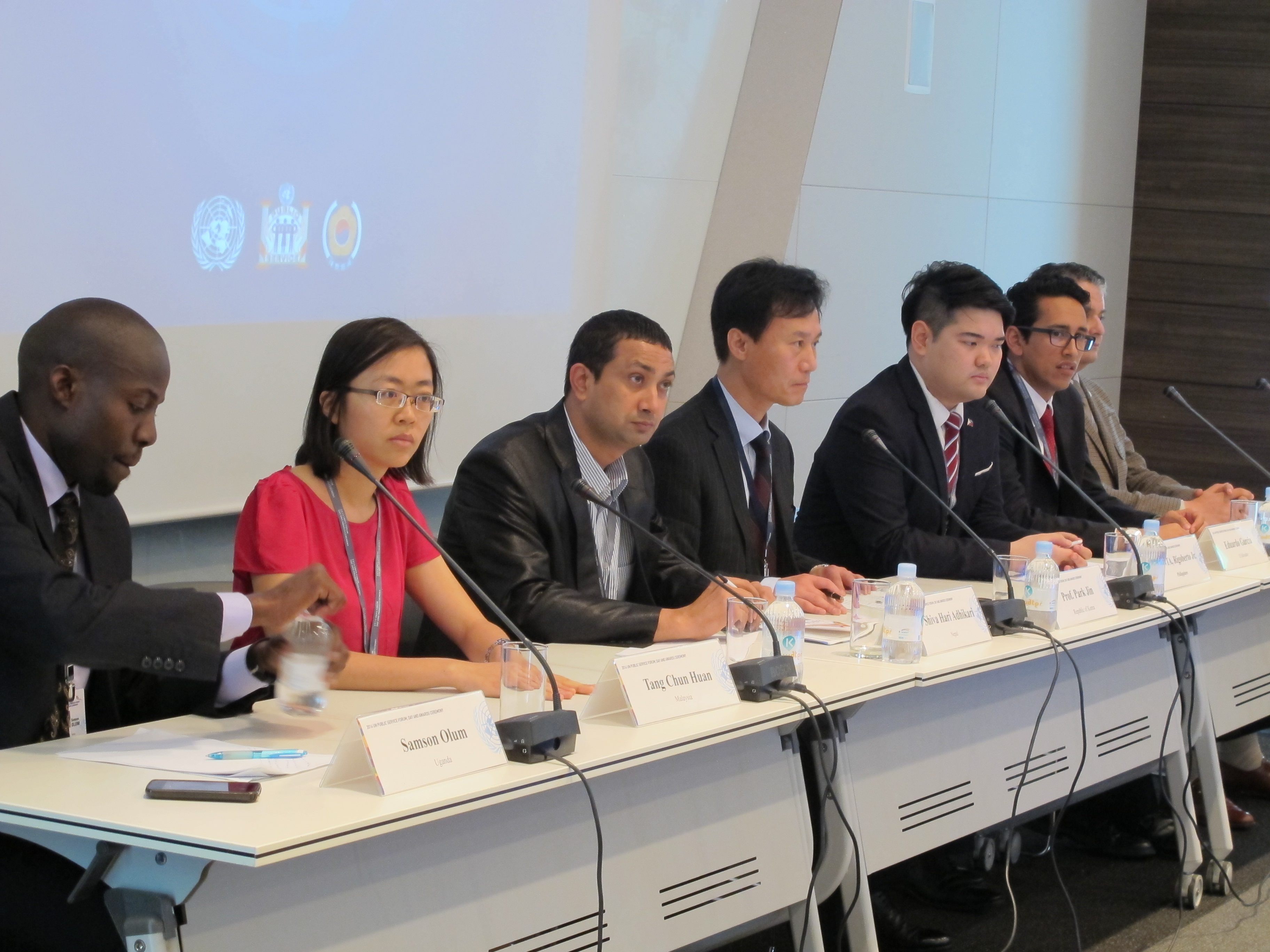
On the other hand, Prof. Soonhee Kim presented on Korean civil service and competency in a separate workshop. She reviewed the civil service reform in Korea, particularly its merit-based recruitment and performance-appraisal system. She concluded the civil service competency building is still in progress in Korea, and highlighted the importance of true leadership.
For the 2014 United Nations Public Service Awards, the Republic of Korea claimed the first place in “promoting whole of government approaches in the information age,” and the second place in “fostering participation in public policy, making decisions through innovative mechanism.” Eleven other countries were selected in other two categories: “improving the delivery of public services” and “promoting gender responsive delivery of public services.”
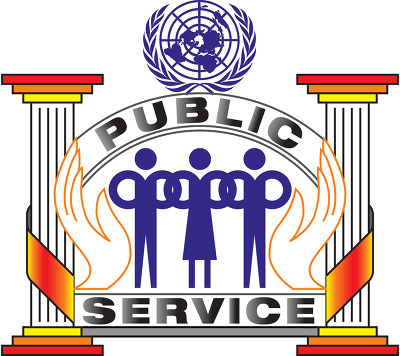
By Sopheana Brohn (2013 MPP, Cambodia)
Related News
-
Research and Education11 days ago
Republic of Korea Economic Bulletin, May 2024#KDI #Economic #KDISCHOOL #kdischool #Economic Bulletin #Research
-
Research and Education39 days ago
Republic of Korea Economic Bulletin, April 2024#KDI #Economic #KDISCHOOL #kdischool #Economic Bulletin #Research
-
Research and Education67 days ago
Republic of Korea Economic Bulletin, March 2024#KDI #Economic #KDISCHOOL #kdischool #Economic Bulletin #Research
